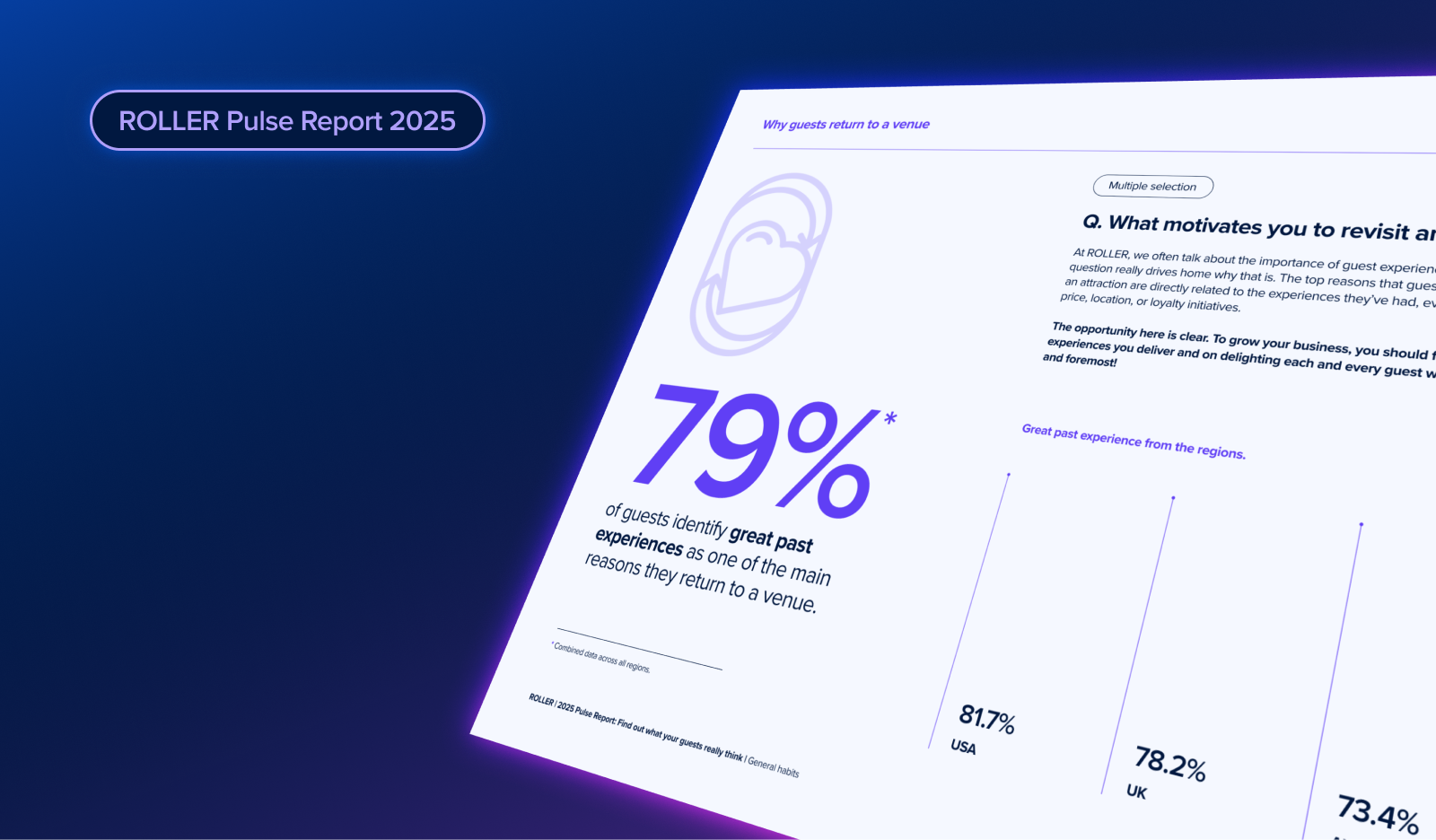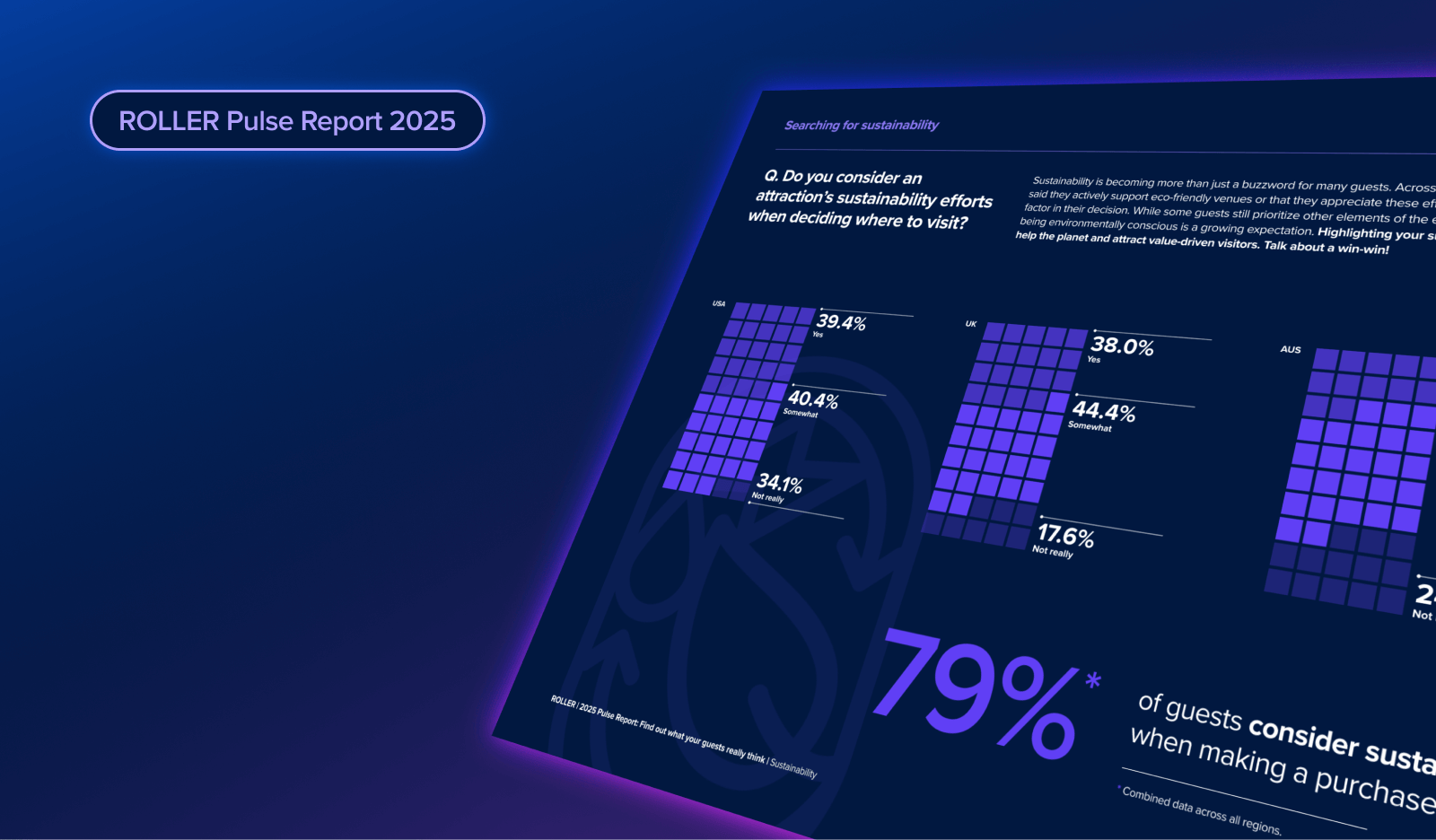What is Customer Care? Why It’s Important and Best Practices

In business, it's the unexpected gestures that often leave lasting impressions. For instance, the day could be disappointing when a theme park attraction unexpectedly closes. Yet, when staff quickly step in, offering complimentary refreshments or fast passes to other rides, frustration turns into gratitude. Such swift, thoughtful responses embody the heart of exceptional customer care—transforming potential disappointments into moments of delight, ensuring guests leave with positive memories. Learn more about how great customer care can transform your business.
Key takeaways
- Customer care builds lasting relationships beyond transactions
- Distinguishing customer care from service fosters loyalty
- Proactive responses turn negative situations into positive
- Blending technology and personal touch enhances satisfaction
What is customer care?
Customer care means building a positive relationship between a business and its customers, but it's much more than just transactional interactions. It involves offering support and service beyond what's expected at every stage of the customer's journey—before, during, and after their purchase or visit. It's about actively listening to feedback, anticipating needs, and being there to offer solutions or enhancements that can turn a routine encounter into a remarkable experience.
In attraction venues, customer care means ensuring that visitors' experiences are enjoyable, memorable, and special. This could involve everything from the facilities' cleanliness, the staff's friendliness and helpfulness, and the services' efficiency. It's about creating a seamless, hassle-free experience that makes visitors feel uniquely valued and cared for. It's the difference between a visitor leaving with a smile, filled with stories to share, versus a visitor who merely attended an attraction.
Customer care vs. customer service: Understanding the difference
While often used interchangeably, customer care and customer service are distinct concepts with different focuses and outcomes. Customer care is about building lasting relationships by proactively enhancing the overall customer experience, while customer service focuses on resolving specific issues as they arise, ensuring immediate customer satisfaction. Customer service is the foundation upon which customer care is built, but customer care is what will keep your guests coming back.
Below are some of the ways that customer care and customer differ.
Customer service
- Reactive nature: It's about responding to customer inquiries and issues as they happen.
- Problem resolution: Focuses on solving specific problems, such as answering questions about ticket prices, providing directions, or handling complaints.
- Immediate satisfaction: The goal is to resolve issues quickly to maintain the business's reputation and operational efficiency.
Customer care
- Proactive approach: Goes beyond reacting to issues by actively seeking ways to improve the overall customer experience.
- Relationship building: Aims to create a positive, long-term relationship with customers, enhancing their loyalty and satisfaction.
- Holistic strategy: Encompasses all aspects of the customer experience, from the moment of initial contact through to post-visit follow-ups.
In practice
- In a customer service scenario, staff might assist a visitor with a lost item by promptly returning it.
- In a customer care scenario, the experience is elevated by returning the lost item, checking in with the visitor afterward, and possibly offering a small token or perk to enhance their day.
Creating special moments
Customer care involves turning every interaction into an opportunity to build a positive relationship. For instance, if staff learn it's a child's birthday during a visit, they might organize a surprise to make the day even more memorable.
The impact of customer care on attraction venues
When running attraction venues, the key to success isn't just in the attractions themselves but in how visitors are treated from start to finish. Good customer interactions can turn a simple outing into a memorable experience, making guests eager to return. Focusing on these elements can make a real difference for your venue.
- Enhanced visitor experiences: Mastering customer care can turn a simple visit into a cherished memory, encouraging repeat visits.
- Building loyalty: This fosters a sense of connection between customers and the venue, creating a community of loyal visitors.
- Competitive advantage: The nuances in how customers are treated can significantly set a venue apart in a crowded market.
By understanding and implementing both customer service and customer care, attraction venues can significantly enhance their appeal, ensuring visitors enjoy their time and feel a deep sense of being valued and cared for.
Real-life customer care examples
The following examples showcase how attractions can go beyond basic customer service to offer care that makes visitors feel valued and eager to return. By personalizing experiences, engaging directly with customers, following up to gather feedback, and ensuring accessibility, venues demonstrate a commitment to excellence in customer care.
Personalized welcome messages
Example: Disney World often utilizes its MagicBand system to offer a personalized experience. Guests wearing MagicBands can be greeted by name upon entering the parks, and some attractions even use the bands to customize the guest experience further, like displaying their names during certain rides.
Quick action
Example: As detailed in Forbes, Six Flags once turned a minor mishap into a memorable customer service triumph when a guest dropped her ice cream on the ground. Without missing a beat, a nearby employee quickly replaced the ice cream at no extra charge. This swift and thoughtful response salvaged the day and showcased Six Flags' commitment to ensuring a positive experience for their guests.
Inventive social media support
Example: The Crab Museum in Margate, England, charms visitors with its unique blend of education and humor. Through inventive displays like a diorama of crustaceans engaging in human activities and thought-provoking exhibits on environmental and societal themes, the museum captivates around 80,000 guests yearly. Its success extends to social media, where its playful approach has garnered an award, highlighting how creativity in presentation and engagement can draw new audiences and foster discussions on significant issues, making the museum's approach a direct extension of its customer care.
Follow-up surveys and offers
Example: City Museum in St. Louis, a unique museum built inside a former shoe factory, offers a blend of children’s playground, funhouse, surrealistic pavilion, and architectural marvels made out of found objects. They've engaged visitors post-visit with surveys and have offered discounts for future visits or events as an incentive to maintain a relationship with their visitors.
Accessibility services
Example: The Monterey Bay Aquarium offers various accessibility services, including wheelchair rentals, sign language interpreters by request, and sensory-inclusive bags to help guests with sensory sensitivities. These efforts ensure that all visitors can fully enjoy their experience at the aquarium regardless of ability.
Customer care best practices
Mastering the art of customer care transforms occasional visitors into passionate champions of your brand. By weaving together best practices with a genuine human touch, you can elevate the guest experience to new heights. Here's your roadmap to upgrading your customer care strategy and making every visit unforgettable.
Train your staff
Invest in comprehensive training programs for your staff that highlight the importance of empathy, patience, and effective problem-solving. Equip your team with the skills they need to handle a wide range of customer interactions gracefully. Remember, your staff are the face of your organization; their ability to connect with visitors on a human level can make all the difference.
Personalize the customer experience
In a world flooded with generic interactions, personalization is key. Use the data from bookings and analytics, surveys, and feedback to tailor your communications and services to each visitor's preferences. A personalized greeting, a recommendation based on past visits, or a custom itinerary can transform a standard visit into an extraordinary experience.
Listen to your customers
Active listening goes beyond merely hearing what your customers say. It involves engaging with their feedback, understanding their needs, and acting on their suggestions. Encourage your guests to share their thoughts through surveys, social media, or feedback forms, and show them that their opinions are valued and instrumental in shaping your services. ROLLER allows you to effortlessly send automated guest surveys, providing insights that can improve guest experience.
Be proactive
Don't wait for issues to escalate before you take action. Anticipate the needs of your visitors and address potential problems before they impact the guest experience. This could mean anything from regularly updating your FAQ section to prevent common inquiries to monitoring queue times and adjusting staffing levels to keep everything running smoothly.
Create a customer-centric culture
Finally, fostering a culture that places customer care at the heart of everything you do is vital. Ensure that every member of your organization—from front-line staff to upper management—understands the importance of customer care and is committed to delivering exceptional service. Make customer satisfaction a key metric in evaluating the success of your operations and recognize and reward staff who go above and beyond in providing outstanding care.
How technology can enhance customer care
Incorporating technology into your customer care strategy can significantly elevate the visitor experience. Here are some key ways to use technology effectively
- Mobile apps: Develop an app for your venue that offers real-time information, such as wait times for attractions, maps, and event schedules. Apps can also facilitate ticket purchases, reservations, and provide personalized recommendations based on the user's interests and past visits.
- AI chatbots: Implement AI-powered chatbots on your website and social media channels to assist visitors instantly. Chatbots can answer common questions, assist with bookings, and even handle basic customer service inquiries, offering a seamless experience at any hour.
- CRM systems: Use Customer Relationship Management (CRM) systems to track and analyze customer preferences, behaviors, and feedback. This data allows you to tailor your communications, offers, and services to meet your visitors' specific needs and desires, making each interaction more personal and meaningful.
By integrating these technologies, you can streamline operations, improve communication, and provide a more personalized and convenient service, making every visit to your venue memorable.
Keeping customer care at the heart of your operation
The heart of exceptional service lies in the thoughtful interactions and personalized experiences you can offer. Beyond simply solving problems, the essence of customer care lies in creating a connection that endures well past any single visit. It's a reminder that every moment of engagement holds the potential to elevate a simple service into an unforgettable encounter, transforming challenges into opportunities for delight and dissatisfaction into loyalty. As businesses continue to navigate the evolving landscape of customer expectations, the principles outlined here serve as a guide for keeping customer care at the center of your venue.
Find out how ROLLER can help you deliver exceptional guest experiences.
Related articles

.png)
What the 2025 Pulse Report Reveals About Guest Booking Behavior at Attractions

2025 Pulse Report: How Sustainability Is Shaping Guest Expectations
Enhance your guest experience
Get free education, tips and inspiration to help you run a successful venue.